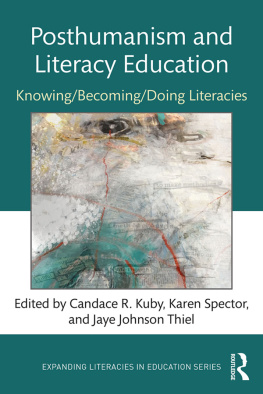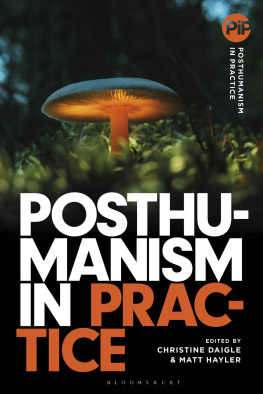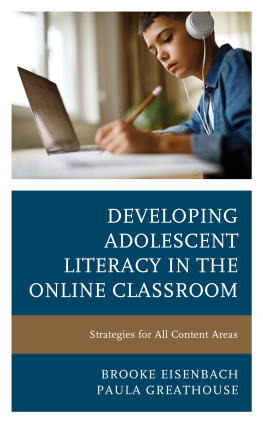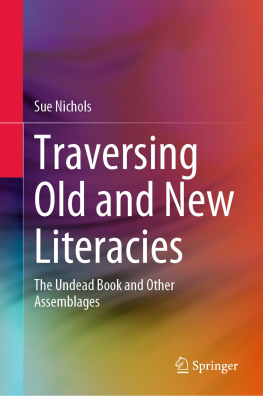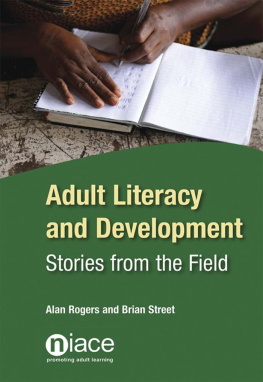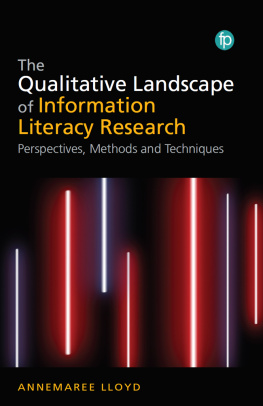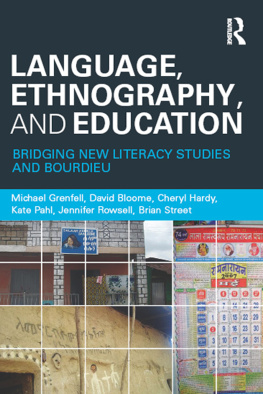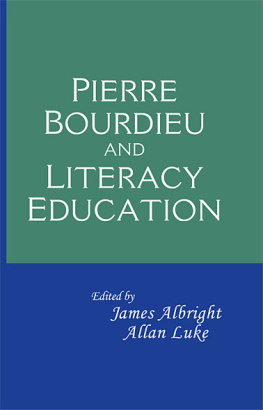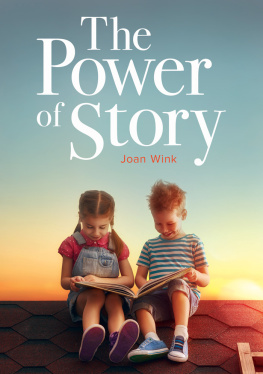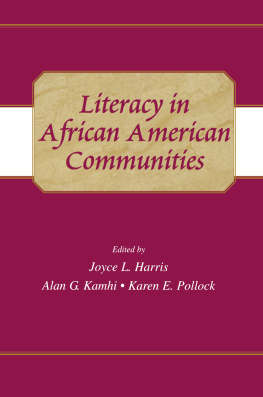Posthumanism and Literacy Education
Covering key terms and concepts in the emerging field of posthumanism and literacy education, this volume investigates posthumanism, not as a lofty theory, but as a materialized way of knowing/becoming/doing the world. The contributors explore the ways that posthumanism helps educators better understand how students, families, and communities come to know/become/do literacies with other humans and nonhumans. Illustrative examples show how posthumanist theories are put to work in and out of school spaces as pedagogies and methodologies in literacy education. With contributions from a range of scholars, from emerging to established, and from both U.S. and international settings, the volume covers literacy practices from pre-K to adult literacy across various contexts. Chapter authors not only wrestle with methodological tensions in doing posthumanist research, but also situate it within pedagogies of teaching literacies. Inviting readers to pause, slow down, and consider posthumanist ways of thinking about agency, intra-activity, subjectivity, and affect, this book explores and experiments with new ways of seeing, understanding, and defining literacies, and allows readers to experience and intra-act with the book in ways more traditional (re)presentations do not.
Candace R. Kuby is Associate Professor of Early Childhood Education at the University of Missouri, USA.
Karen Spector is Associate Professor of Secondary Education Language Arts at the University of Alabama, USA.
Jaye Johnson Thiel is a Visiting Research Scholar at the University of Georgia, USA.
Expanding Literacies in Education
Jennifer Rowsell and Cynthia Lewis, Series Editors
Reading Students Lives
Literacy Learning Across Time
Catherine Compton-Lilly
Literacy and Mobility
Complexity, Uncertainty and Agency at the Nexus of High School and College
Brice Nordquist
Literacy Lives in Transcultural Times
Edited by Rahat Zaidi and Jennifer Rowsell
Reclaiming Powerful Literacies
New Horizons for Critical Discourse Analysis
Rebecca Rogers
Community Literacies as Shared Resources for Transformation
Edited by Joanne Larson and George H. Moses
Posthumanism and Literacy Education
Knowing/Becoming/Doing Literacies
Edited by Candace R. Kuby, Karen Spector, and Jaye Johnson Thiel
For more information about this series, please visit: www.routledge.com/Expanding-Literacies-in-Education/book-series/ELIE
Posthumanism and Literacy Education
Knowing/Becoming/Doing Literacies
Edited by Candace R. Kuby, Karen Spector, and Jaye Johnson Thiel

First published 2019
by Routledge
711 Third Avenue, New York, NY 10017
and by Routledge
2 Park Square, Milton Park, Abingdon, Oxon, OX14 4RN
Routledge is an imprint of the Taylor & Francis Group, an informa business
2019 Taylor & Francis
The right of Candace R. Kuby, Karen Spector, and Jaye Johnson Thiel to be identified as the authors of the editorial material, and of the authors for their individual chapters, has been asserted in accordance with sections 77 and 78 of the Copyright, Designs and Patents Act 1988.
All rights reserved. No part of this book may be reprinted or reproduced or utilised in any form or by any electronic, mechanical, or other means, now known or hereafter invented, including photocopying and recording, or in any information storage or retrieval system, without permission in writing from the publishers.
Trademark notice: Product or corporate names may be trademarks or registered trademarks, and are used only for identification and explanation without intent to infringe.
Library of Congress Cataloging-in-Publication Data
Names: Kuby, Candace R., editor.
Title: Posthumanism and literacy education : knowing/becoming/doing literacies / edited by Candace R. Kuby, Karen Spector, and Jaye Johnson Thiel.
Description: New York : Routledge, 2018. | Series: Expanding literacies in education series | Includes bibliographical references and index.
Identifiers: LCCN 2018002877 | ISBN 9781138094390 (hardback) | ISBN 9781138094413 (pbk.) | ISBN 9781315106083 (ebook)
Subjects: LCSH: LiteracySocial aspects. | Humanism. | Critical pedagogy.
Classification: LCC LC149 .P66 2018 | DDC 302.2/244dc23
LC record available at https://lccn.loc.gov/2018002877
ISBN: 978-1-138-09439-0 (hbk)
ISBN: 978-1-138-09441-3 (pbk)
ISBN: 978-1-315-10608-3 (ebk)
Typeset in Bembo
by Apex CoVantage, LLC
For Carlann and all the ways you teach me how literacies come to be and (re)configure our lively world. ~ Candace
For Zach, Sam, and Caleb. Your laughter makes my heart sing. ~ Karen
For my badass Paw Paw, your stories will forever echo in the words and worlds I craft. ~ Jaye
Contents
Candace R. Kuby, Karen Spector, and Jaye Johnson Thiel
Part I
Agency
Jaye Johnson Thiel, Candace R. Kuby, and Karen Spector with art by Brooke Hofsess
Teri Holbrook and Susan Ophelia Cannon
Denise Newfield and Vivienne Bozalek
Jaye Johnson Thiel and Candace R. Kuby
Karen Spector and Briana G. Kidd
Part II
Intra-Action and Entanglement
Candace R. Kuby, Jaye Johnson Thiel, and Karen Spector with art by Brooke Hofsess
Christopher M. Schulte
Alyssa D. Niccolini
Petra Mikulan
Stephanie Jones
Jaye Johnson Thiel
Part III
Subjectivity
Karen Spector, Candace R. Kuby, and Jaye Johnson Thiel with art by Brooke Hofsess
Jon M. Wargo
Asilia Franklin-Phipps and Courtney L. Rath
Karin Murris
Lisa A. Mazzei and Alecia Y. Jackson
Candace R. Kuby
Part IV
Affect
Karen Spector, Jaye Johnson Thiel, and Candace R. Kuby with art by Brooke Hofsess
Vicki Hargraves
Fikile Nxumalo and Jessica Cira Rubin
Karen Spector and Kelly W. Guyotte
Pauliina Rautio
Jaye Johnson Thiel and Candace R. Kuby
In this volume, we not only aim to put to work posthumanist theories as methodologies and pedagogies, but also to write with posthumanist theories, thereby encouraging our readers to experience this edited volume differently from books rooted in non-posthumanist theories. Consider this book a call, an invitation. A full-throated appeal to intra-act with posthumanist ideas. Some contributors experimented with varied formats, genres, and ways of (re)presenting ideas on paper, and all open up new and productive ways of knowing, becoming, and doing literacies research and pedagogy. We think some readers and contributors will be (un)comfortable through their engagement with the newness of this text; however, we also understand that if there is too much newness, deviation from what is normal for an academic text, readers might not continue on the journey of the book.
Smooth and Striated Spaces
Drawing on Deleuze and Guattaris (1987) notion of spaces, this volume creates opportunities for smooth, supple, bending, porous, nomadic spaces and more customary striated, rigid, sedentary, inactive spaces. Smooth spaces are like the desert or the seaopen, expansive, full of possible directions. Striated spaces are like the infrastructure of a citystreets and buildings that force bodies in certain directions (Lenz Taguchi, 2010). Deleuze and Guattari (1987) articulated that the two spaces exist only in a mixture: Smooth space is constantly being translated, transversed into a striated space; striated space is constantly being reversed, returned to a smooth space (p. 474). Therefore, we aim to provide enough structure, or striated spaces (typical formats for academic books), to help readers feel supported and engaged, yet also provide enough smooth space (departures from the norm) for readers to experience and intra-act in new ways to produce new understandings.

